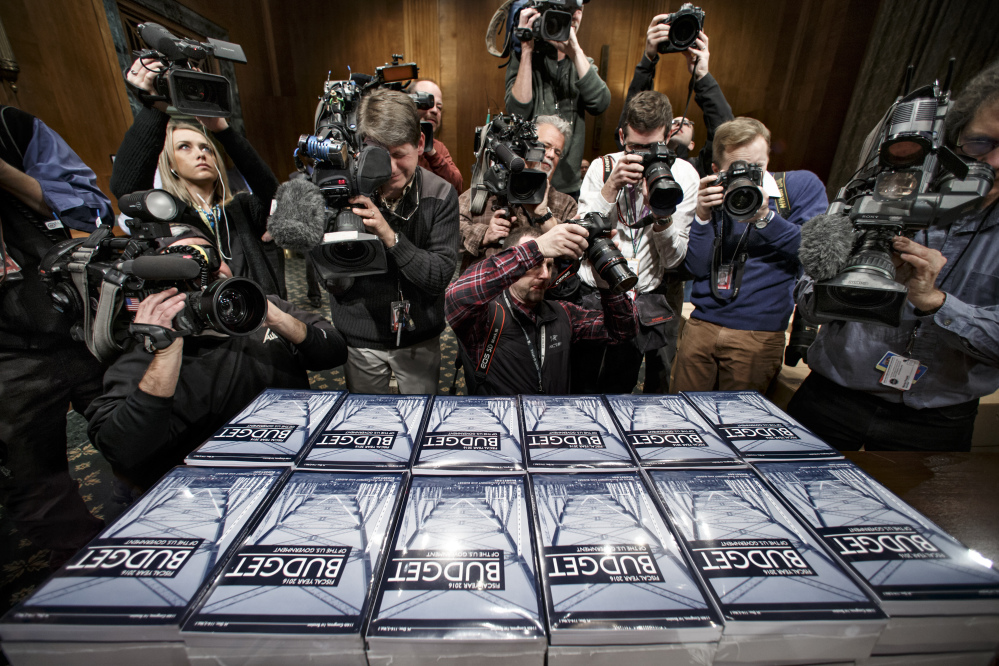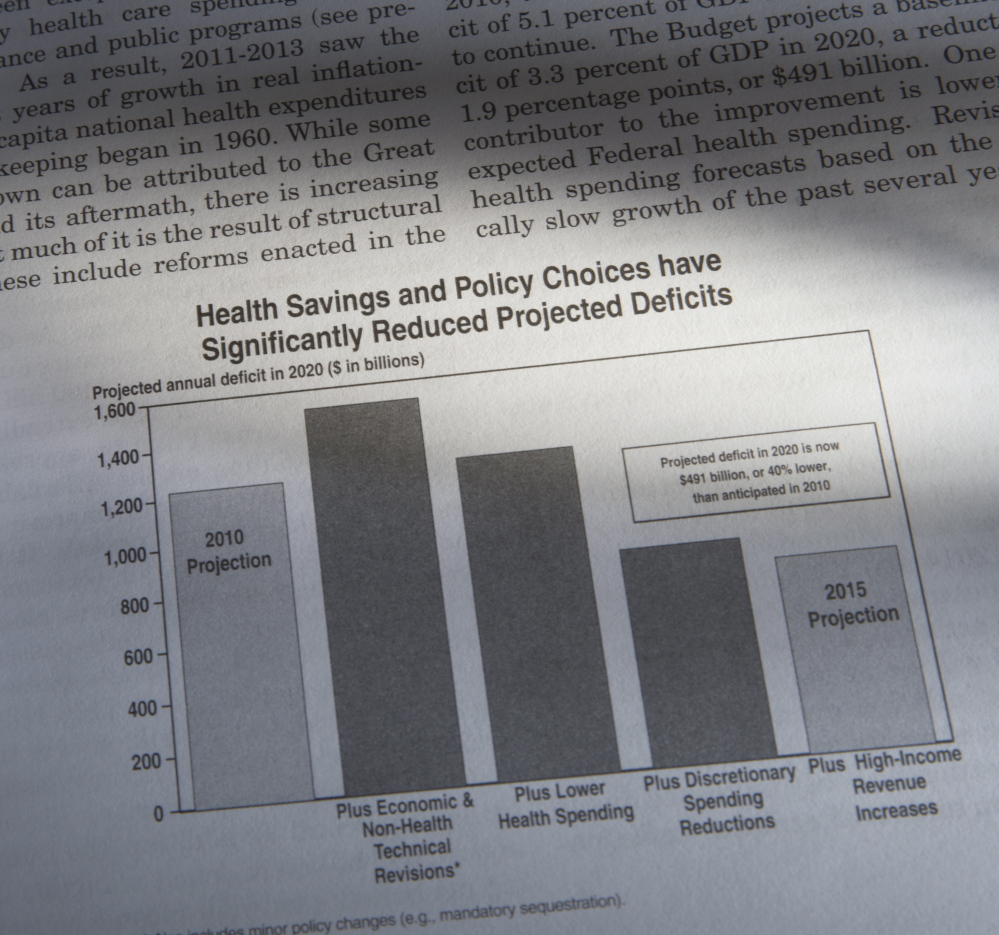WASHINGTON — With patients facing greater exposure to the high cost of new medications, President Obama called Monday for government to use its buying power to squeeze drug companies for lower prices.
Obama’s budget asks Congress to authorize Medicare to negotiate on behalf of its beneficiaries for so-called “specialty” drugs that require hefty copayments from patients. They include biologics, which are medications derived from natural substances, ranging from insulin to some of the latest cancer treatments.
Health and Human Services Secretary Sylvia M. Burwell said the proposal aims to both control costs and improve patient care. It’s expected to be submitted as legislation.
The move sends a political message because drug companies were allies in Obama’s struggle to pass his health care overhaul from 2009 to 2010. Fast forward to 2015, and it’s insurance companies that are helping put the law’s coverage expansion into place. Insurers have been complaining loudly about the high price of new drugs, such as Sovaldi, the $1,000-per-pill medication that can cure hepatitis C.
Unlike the U.S., governments in many other countries play a central role in determining drug prices. While the Veterans Affairs Department and state Medicaid programs have legal authority to obtain steep discounts from drug makers, that doesn’t include the largest payer, Medicare. Congress denied HHS the authority to negotiate prices when the Medicare prescription program was created.
Instead, that role is played by private insurers who deliver the prescription benefit to the more than 55 million Medicare beneficiaries. But when it comes to new drugs with no generic competitors, insurers have limited leverage. As a result, such medications often wind up on coverage tiers that require patients themselves to pay a big share of the price.
Matt Salo, executive director of the National Association of Medicaid Directors, said the debate needs to go beyond Medicare. A comprehensive approach to drug costs is needed across insurance programs.
“If in this competitive market, Medicare is able to drop the floor on prices, what is the ripple effect?” asked Salo. “Does Medicaid get charged more?”
Obama’s $1.1 trillion health care budget also calls for:
* A near-doubling of tobacco taxes, to extend health insurance for low-income children, in 2016. The federal cigarette tax would rise from just under $1.01 per pack to about $1.95 per pack. Taxes on other tobacco products also would go up. That would provide financing to pay for the Children’s Health Insurance Program through 2019. The federal-state program serves about 8 million children.
* An $80 million increase for the HHS inspector general, whose agency investigates fraud and abuse. Part of the money would be used to oversee the insurance markets created under Obama’s health care law.
Send questions/comments to the editors.




Success. Please wait for the page to reload. If the page does not reload within 5 seconds, please refresh the page.
Enter your email and password to access comments.
Hi, to comment on stories you must . This profile is in addition to your subscription and website login.
Already have a commenting profile? .
Invalid username/password.
Please check your email to confirm and complete your registration.
Only subscribers are eligible to post comments. Please subscribe or login first for digital access. Here’s why.
Use the form below to reset your password. When you've submitted your account email, we will send an email with a reset code.